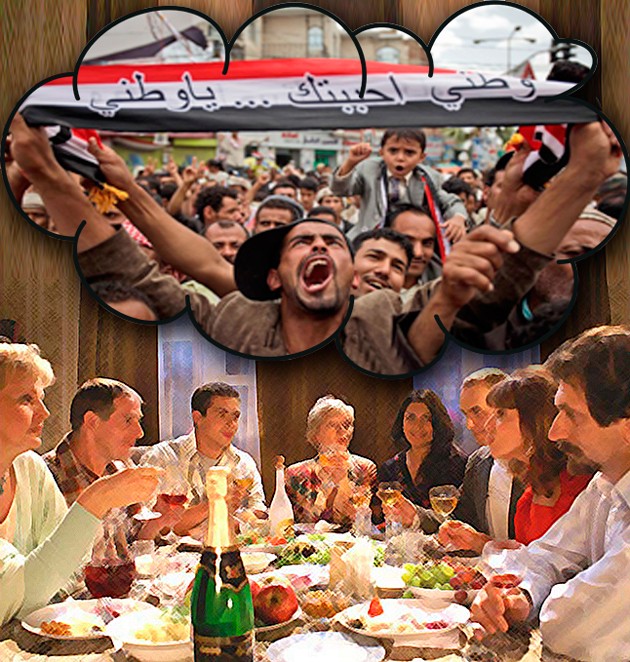איסלאַמיסטן קומען צו דער מסיבה
Islamists Join the Kumzits

פֿון עמיל קאַלין
(די 3 טע זײַט פֿון 4)
די זײַטיקע שמועסן זענען געווען איבערהויפּט אינפֿאָרמאַטיוו, און באַשטאַנען פֿון קורצע פֿראַגעס און קורצע ענטפֿערס:
„וואָס מאַכסטו?‟
„איך האָב זיך ערשט באַפֿרײַט פֿון מיליטער.‟
„שיין, פֿאָרסטו ערגעץ?‟
„כ’ווייס נאָך נישט.‟
איך האָב זיך דערווײַל פֿאָרגעשטעלט אַזאַ שמועס:
„וואָס הערט זיך?‟
„איך האָב חתונה געהאַט.‟
„ווען? יענע וואָך?‟
„ניין, מיט אַ יאָר צוריק.‟
„און וווּ איז דײַן ווײַב?‟
„דאָ, זי זיצט לעבן ר’ איקס און קײַט אַ בייגל.‟
„אַיאָ? כ’קען זי נישט.‟
„זי איז שוין געווען אויף עטלעכע מסיבות פֿריִער.‟
אָדער:
„זיסע קינדערלעך!‟
„זיי זענען מײַנע, כאָטש צוויי פֿון זיי.‟
„אַיאָ? כ’קען זיי נישט.‟
„צי קען מען טאַקע קענען אַ מענטשן?‟
„ניין, אַוודאַי, נישט.‟
די לעצטע אַרטיקלען
The Yiddish Daily Forward welcomes reader comments in order to promote thoughtful discussion on issues of importance to the Jewish community. In the interest of maintaining a civil forum, The Yiddish Daily Forwardrequires that all commenters be appropriately respectful toward our writers, other commenters and the subjects of the articles. Vigorous debate and reasoned critique are welcome; name-calling and personal invective are not. While we generally do not seek to edit or actively moderate comments, our spam filter prevents most links and certain key words from being posted and The Yiddish Daily Forward reserves the right to remove comments for any reason.





